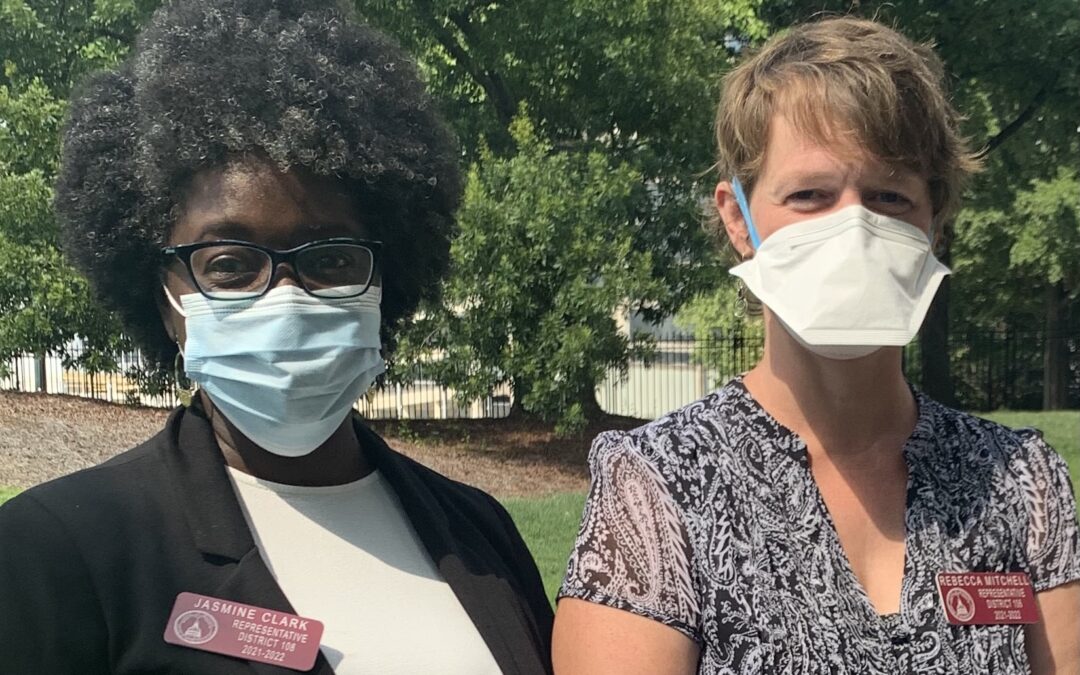It was so abrupt. In March of 2020, Georgia schools closed due to the threat of COVID-19, and many schools remained fully or partially closed, opting for digital learning, for the subsequent 2020-2021 school year.
After research suggested digital learning led to academic deficits for many students, and as more public health research became available on how to control transmission and spread of the virus which causes COVID-19, schools systems across the state made the decision this spring to encourage in-person learning for this fall. Many of these decisions were made after most adults and children older than 12 were eligible to be vaccinated, as the state was beginning to see light at the end of the tunnel when it came to case rates, and before the highly contagious Delta variant emerged and took hold as the dominant COVID strain in the United States.
Herein lies the conundrum: pandemics are not static and viruses do not follow academic or political calendars. As the virus changed, literally mutating into a more contagious variant, the approach to mitigating viral transmission needed to also adapt. Unfortunately, for many in positions to make important, and sometimes hard decisions, the failure to adapt will make our schools much less safe than they could and should be.
After Georgia schools in several locations resumed in-person classes the first week of August, we already see the impact of this failure in state leadership which refuses to embrace a science-driven approach to safe in-person school protocols. There are numerous reports of COVID exposure and diagnoses, likely due to activities that took place before school started, as a result of campus visits and activities. For example, during the first week of school, both Cobb and Gwinnett County schools have already reported just short of 200 confirmed COVID cases in their respective school districts.
Based on incubation periods for the virus, we know this is just the beginning of a very frightening and dangerous scenario for Georgia students, their families, and the community at large. This causes both of us – as science professionals and the parents of public school children – grave concern.
The decisions made at the intersection of public health and politics impact the long-term health of individuals and entire communities. Tragically, more than 600,000 Americans have already paid with their lives for certain early Pandemic 2020 decisions made at the highest levels! During a public health crisis, policies should be implemented based on the guidance of public health experts. While we hold advanced degrees in the scientific fields of microbiology and epidemiology, respectively, we do not believe all politicians must be scientists, doctors, or epidemiologists. We do, however, believe our politicians and decision-makers should listen to the experts when making policy decisions with life or death consequences.
Public school systems depend on strong guidance for how to manage a crisis. The federal government, the Centers for Disease Control and the American Association of Pediatricians bring scientific knowledge to their recommendations which would be impossible for any individual local school district to gather and utilize as a part of the decision making process. These local school boards also depend upon the state Department of Public Health to establish parameters for guidelines with formal policy.
However, at a time when the transmissibility of the virus has increased, the state Department of Public Health has failed our school children by walking away from the basic guidelines established and set forth by the CDC and supported by the AAP. These guidelines include emphasizing the importance of in-person learning, universal masking, and a layered approach to preventing spread of the virus which include post-exposure quarantine protocols. The Georgia Department of Public Health should be encouraging individual school districts, our 18 multi-county health districts, and government officials from the highest level on down to follow this sound science-based policy. Instead, GDPH set school systems free to cherry pick the most convenient and politically palatable guidelines and abandon those which make some uncomfortable or require tough or unpopular decisions at the local level.
On August 2, a new administrative guidance was issued by the Georgia Department of Public Health which allows schools to make their own policies with respect to in-school COVID exposure. In short, GDPH has chosen to allow schools to make their own rules on whether or not to require quarantine if children have been exposed to the virus. They have also chosen not to require even the most basic interventions like universal mandatory masking. This is not only bad policy, but it is dangerous policy.
As of the last 24 hours, we have received multiple notices from frustrated parents who have learned that their schools will neither contact trace, nor social distance, nor require quarantine among children in mask-optional districts. Even as the virus mutates and the health situation grows more alarming with new reports, we know with absolute certainty that the protocols recommended by the CDC and AAP would make Georgia schools safer for all school children, especially those who are unable to be vaccinated, and for immunocompromised staff and family members.
The cold, hard truth is many of our colleagues who are vocally against the most basic safety guidelines for Georgia’s public schools either do not have school-aged children or they send their children to private schools where sophisticated and careful protocols for COVID prevention are in place. In the past, these protocols included mitigation strategies such as weekly testing, mandatory masks, distanced desks and outdoor lunches, augmented by highly vaccinated parents and staff to create a bubble of safety. These private schools contact trace and strictly enforce recommended quarantine protocols, all the while keeping parents informed. These layers of protection and mitigation plans are based on medical science — not politics. Parents accept the protocols for children in private school, but sometimes vehemently argue against the same effort being put toward protecting students in our public schools — students like our very own children, who actually attend public school and are directly affected by the politicization of a pandemic.
Child safety during a public health crisis should not be dependent on whether or not you pay tuition. All children in our state are entitled to a safe school environment.
Let’s be clear: there are two paths for keeping Georgia public schools open. One path is to rely upon the science learned during the past year to develop responsible, layered school safety protocols. The second and far more dangerous path is to ignore infections as they sweep through schools without regard to CDC guidelines. While either path will be enhanced by a great deal of positive thinking and prayers, only the first path keeps our children safer.
Dr. Rebecca Mitchell was elected to Gwinnett’s House District 106 in 2020. She is a mother of four children and holds both a PhD from Cornell in Epidemiology focused on infectious disease dynamics and DVM. Her background includes fellowships with CDC, the USDA, and NIH and she is a co-author of more than 30 papers.
Dr. Jasmine Clark was elected to represent Gwinnett’s House District 108 in 2018 and is a mother of two. She holds a PhD in Microbiology from Emory University and is faculty at the Emory School of Nursing. She organized Atlanta’s March for Science in 2017.
Referenced Documents:
August 2nd Administrative Order 15 from GA DPH
Cases in Gwinnett County Public Schools

